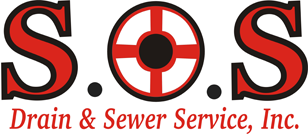Drain cleaning is an essential aspect of plumbing maintenance that involves removing any obstructions or buildup in your drains and pipes. It is a preventive measure that aims to avoid clogs and blockages, which can lead to costly repairs and inconveniences.
In this article, we will discuss how drain cleaning helps prevent clogs and the various methods used in this process.
The Importance of Drain Cleaning
Regular drain cleaning is crucial in maintaining the health and functionality of your plumbing system. Over time, debris, grease, hair, soap scum, and other substances can accumulate in your drains and pipes, causing them to become clogged. This buildup restricts water flow and can eventually lead to complete blockages.
Clogs not only disrupt the proper functioning of your plumbing but also pose health hazards as they can attract bacteria and insects. Moreover, ignoring clogs for an extended period can result in burst pipes and sewage backups, leading to expensive repairs.
Plus, clogged drains can also cause foul odors to linger in your home, making it uncomfortable for you and your family. By regularly cleaning your drains, you can prevent these issues and ensure that your plumbing system remains in top condition.
How Drain Cleaning Prevents Clogs
Drain cleaning prevents clogs by removing any potential obstructions in your pipes and drains before they become a problem. Regularly scheduled drain cleaning can detect and remove small blockages that could eventually lead to bigger clogs.
Furthermore, by keeping your pipes clean and free of buildup, you allow for proper water flow throughout your plumbing system. This means that there is less chance of debris getting stuck and causing a blockage.
Moreover, professional drain cleaners also use specialized tools and techniques to thoroughly clean the inside of your pipes, ensuring that no residue or buildup remains. These methods not only prevent clogs but also help prolong the life of your pipes, avoiding the need for costly replacements.
Additionally, drain cleaning can also detect and resolve any underlying issues in your plumbing system that may contribute to clogs. For example, tree root intrusion or damaged pipes can be identified and repaired before they cause major clogs or backups.
Methods of Drain Cleaning
There are various methods used for drain cleaning, depending on the severity of the clog and the type of pipes in your home. The most common method is using a drain snake or auger, which is a long flexible wire that can reach deep into your pipes to break up any obstructions.
Another method is hydro jetting, which involves using high-pressure water to blast away any buildup and debris in your pipes. This method is highly effective in removing tough clogs and can also clean the inside of your pipes, preventing future blockages.
Chemical drain cleaners are also commonly used but should be handled with caution as they can damage pipes and may not be suitable for all types of clogs.
Lastly, professional drain cleaners may use video camera inspections to accurately diagnose and locate clogs or other issues within your plumbing system. This allows for targeted cleaning and repair, reducing the risk of recurring clogs.
How Often Should You Clean Your Drains?
The frequency of drain cleaning depends on various factors such as the age of your pipes, the amount of usage, and the presence of any trees or plants near your sewer line. Generally, it is recommended to have your drains professionally cleaned at least once a year.
However, if you notice slow drainage or foul odors coming from your drains, it may be necessary to clean them more frequently. It is also essential to practice good drain maintenance habits such as not pouring grease and food particles down the drain and using drain covers to catch hair and other debris.
Regular drain cleaning not only prevents clogs but also helps maintain the health and longevity of your plumbing system. Make sure to schedule routine drain cleaning with a trusted professional to keep your drains running smoothly.
How A Professional Plumber Can Help
While there are several DIY methods for drain cleaning, it is always best to seek the help of a professional drain cleaner. They have the expertise and specialized equipment to thoroughly clean your drains and pipes, ensuring that no residue or buildup remains.
Moreover, professional drain cleaners can also identify any underlying issues within your plumbing system that may contribute to clogs and provide solutions to prevent future blockages. They can also recommend the best maintenance routine for your specific plumbing system.
In case of stubborn or recurring clogs, a professional drain cleaner can use advanced techniques such as hydro jetting to effectively remove the obstruction and restore proper water flow. Don’t hesitate to call a professional drain cleaner for your drain cleaning needs to avoid costly repairs and inconveniences in the future.
Choose S.O.S Drain and Sewer Services For Your Drain and Sewer Cleaning Needs
When it comes to drain and sewer cleaning services in Minneapolis and St. Paul, S.O.S Drain & Sewer Services is the top choice for both commercial and residential clients. With over 80 years of experience, we pride ourselves on providing quick, clean, and on-time services while prioritizing safety at the job site. As a family-owned and operated business since 1941, we prioritize customer satisfaction and trust above all else.
Our team of expert technicians are highly trained to handle a range of drain and sewer line issues with the most up-to-date techniques and equipment. We offer upfront pricing with no hidden costs, and our goal is to efficiently fix any problem to prevent future expenses for our clients. Our high customer retention rate speaks to the quality of our services, as many of our satisfied customers not only return but also refer us to friends and family.
At S.O.S Drain & Sewer Services, we believe in providing affordable and reliable services that you can trust. We offer preventive maintenance programs and are available 24/7 for emergency calls.
FAQs
How does regular use of drain cleaner help prevent clogged drains in the kitchen sink?
Regular use of a drain cleaner in the kitchen sink can help prevent clogged drains by breaking down and removing buildup of food scraps and grease. This maintains a clear path for water flow and prevents the accumulation of debris that can lead to a clogged drain, especially in areas like the kitchen sink drain where such buildups are common.
What practices can help prevent clogged drains in shower drains and bathroom sinks?
To prevent clogged drains in shower drains and bathroom sinks, it’s important to regularly clear out hair, soap scum, and other debris. Using a mesh screen can also help catch materials before they enter the drain system. Additionally, regularly flushing the drains with hot water can help dissolve and dislodge any accumulating substances that might cause a blockage.
How can managing what goes into a garbage disposal help in preventing clogged drains?
Managing what goes into your garbage disposal is crucial for preventing clogged drains. Avoid disposing of food scraps that are not meant for garbage disposal units, such as fibrous vegetables, bones, and cooking oils. These can accumulate in the kitchen sink drain and cause clogs. Regularly running the garbage disposal with plenty of water can also help ensure that the food scraps are completely flushed through the system.
Why is it important to consider what type of toilet paper is flushed down the toilet?
It’s important to consider what type of toilet paper is used because some thicker, quilted toilet papers do not break down easily and can contribute to clogged drains. Using single-ply or other easily dissolvable toilet paper can help keep the toilet and its connecting drain system clear, thereby preventing clogged drains. Regularly flushing only appropriate amounts of toilet paper is also critical to maintaining a clear drainage system.








